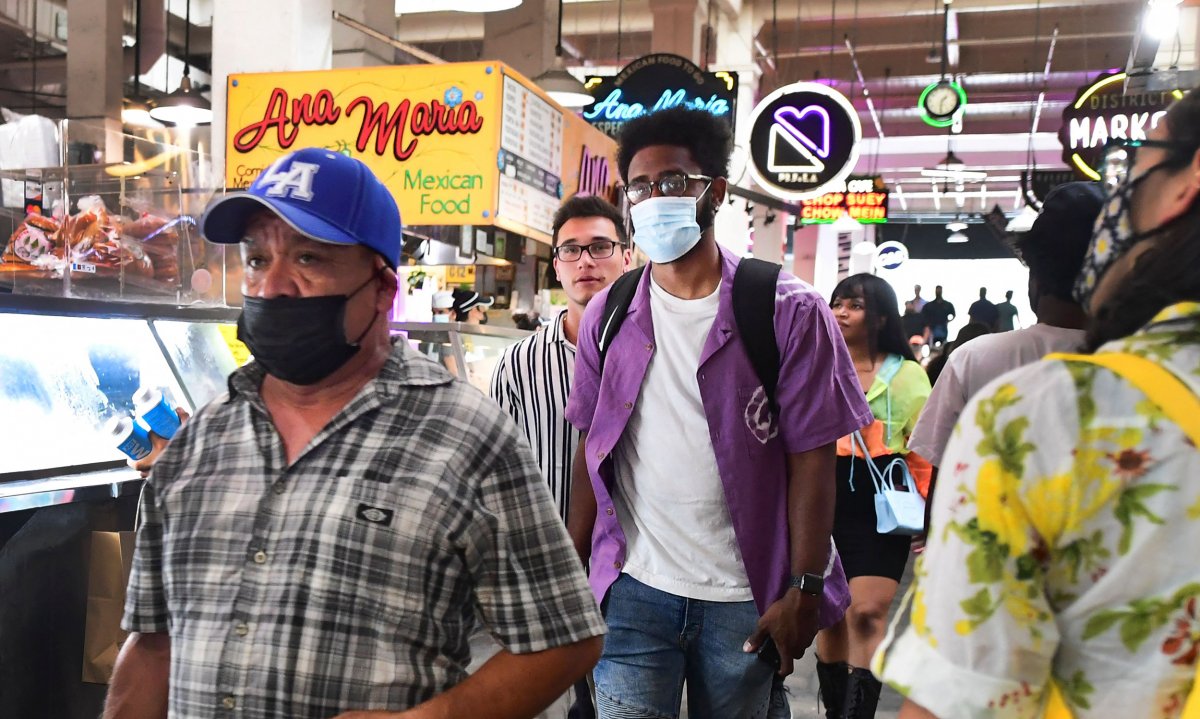Nebraska is the only state in the United States to have not detected a case of the Mu variant of COVID-19, which may render vaccines less effective.
Since being first identified in Colombia in January, the Mu variant has spread to 41 countries, including the United States. Most prevalent in Hawaii and Alaska, the variant accounts for less than one percent of cases in the U.S., but its potential to be more transmissible or resist vaccines and natural immunity have health officials keeping tabs on the mutation.
At least one case of the Mu variant has been detected in the District of Columbia and every state in the U.S. aside from Nebraska, according to Outbreak.info, a website that provides open source data on COVID-19 variants.
California has reported the highest number of Mu variant samples, at 384 cases, but that only accounts for 0.2 percent of the total samples sequenced in the state. As of Friday, Los Angeles County had identified 167 Mu variant cases, according to the Department of Public Health. The cases were found in samples sequenced between June 19 and August 21, with the bulk of the cases being found in July.
"The identification of variants like Mu, and the spreading of variants across the globe, highlights the need for L.A. County residents to continue to take measures to protect themselves and others," Dr. Barbara Ferrer, director of LA County Public Health said in a statement. "This is what makes getting vaccinated and layering protections so important. These are actions that break the chain of transmission and limits COVID-19 proliferation that allows for the virus to mutate into something that could be more dangerous."

Maine, Connecticut and Florida round out the list of states with the highest prevalence of Mu cases. Florida's had the second-highest number of samples, at 384 of the 60,475 samples that were sequenced being of the Mu variant.
In contrast to California and Alaska, Alaska has only had 146 cases, but Mu is significantly more prevalent in the state than others, as cases represent 4 percent of the total samples that were sequenced.
The World Health Organization labeled Mu a variant of interest on August 30 because its characteristics could make it more transmissible or resistant to vaccines. However, the Centers for Disease Control and Prevention (CDC) has yet to make the same classification.
On Thursday, Dr. Anthony Fauci, director of the National Institute of Allergy and Infectious Diseases (NIAID), said officials were keeping a "close eye" on the Mu variant. Although it's been found in the United States, Fauci noted that it's "not at all even close" to being the dominant variant in the U.S. That distinction resides with the Delta variant, which accounts for more than 99 percent of cases.
"Even though it has not in essence taken hold to any extent here we always pay attention to at all times variants," Fauci said, acknowledging that laboratory data suggests it could resist monoclonal antibodies and the vaccine. "We don't consider it an immediate threat right now."
Even if the variant proves to diminish the efficacy of vaccines in the clinical setting, Fauci said the inoculation will still be helpful in reducing the number of cases, hospitalizations and deaths.
The 7-day average of Mu cases in the United States hit a peak in mid-July and has been trending downward since, according to Outbreak.info. The downward trend could be the result of fewer samples being sequenced, that the variant is petering out or it may not have taken hold in the U.S yet.
Uncommon Knowledge
Newsweek is committed to challenging conventional wisdom and finding connections in the search for common ground.
Newsweek is committed to challenging conventional wisdom and finding connections in the search for common ground.
About the writer
Jenni Fink is a senior editor at Newsweek, based in New York. She leads the National News team, reporting on ... Read more
To read how Newsweek uses AI as a newsroom tool, Click here.








